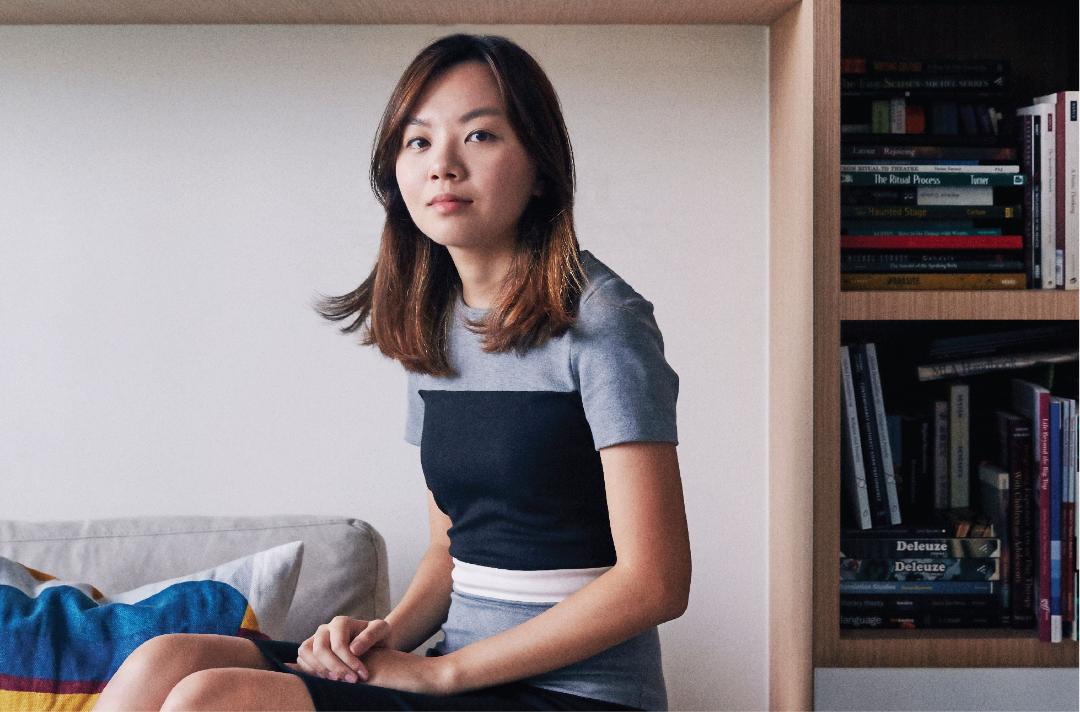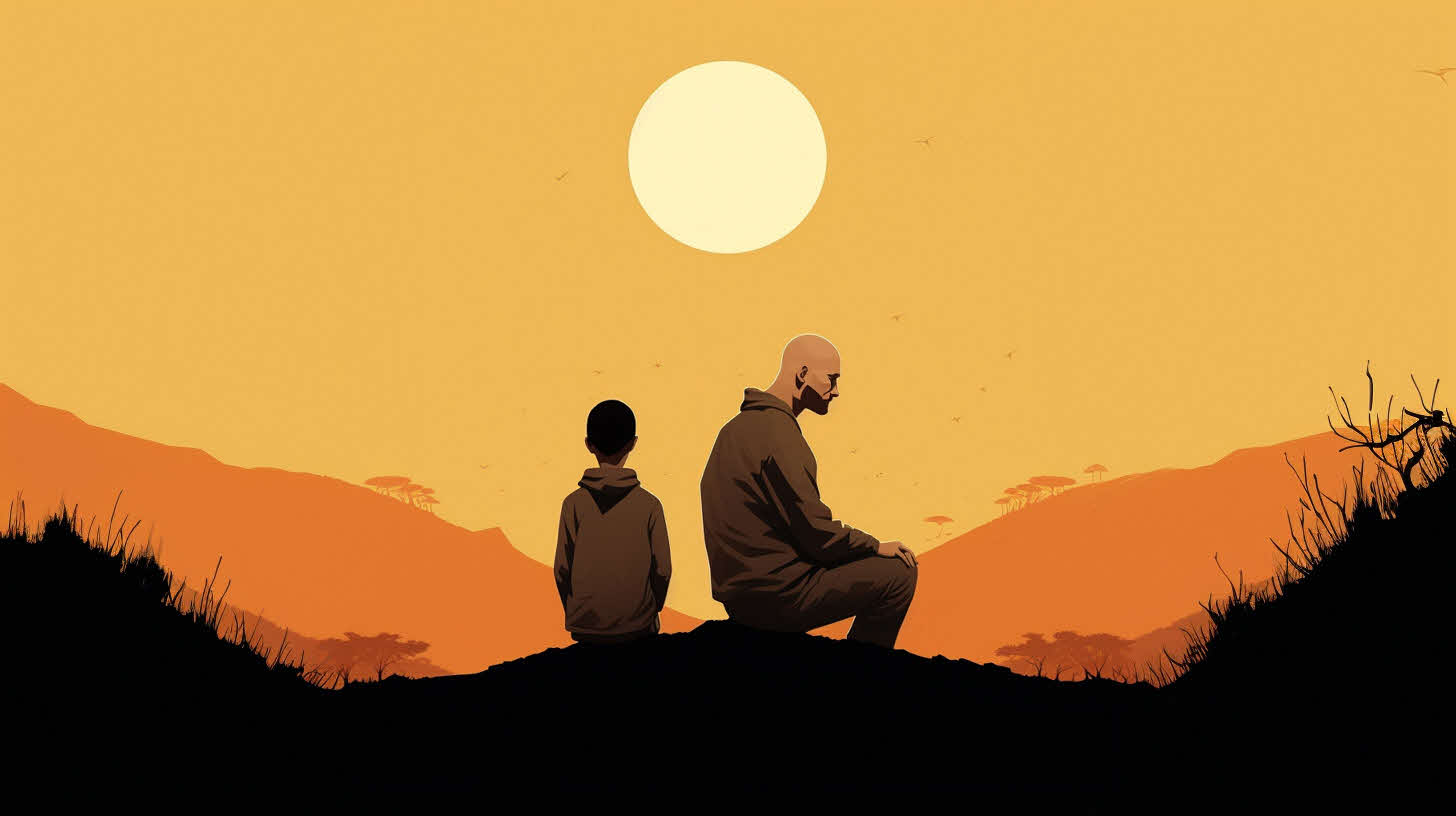Faith Ng describes her grades in her early years as ‘going to the extreme’. She would ace subjects like English and Art and do badly in Math and Chinese. It didn’t help that she was rebellious and as angst-ridden as the next teenager. Her feelings of insecurity worsened with the stigma she felt when she entered secondary school as a Normal stream student.
Art inspired her
To cope with her feelings, she turned to art, which not only inspired her but also became an outlet of expression. She says, “When you’re a teenager trying to figure out who you are as a person, you need a safe space to go to and explore all the things you’re confused about.”
Ms Agnes Ong was her art teacher for five years in secondary school. She gave the students lots of freedom and creativity to explore and express themselves. Faith recalls that “what we were conceptualising was very dark, emo and angsty but she let us go with it… I could let my imagination run wild.”
Teacher as mentor
Although she was excelling in art, Faith would sabotage herself by not handing in her homework. “Ms Ong called me after class one day and said, ‘I noticed you didn’t submit your homework this week, it’s very unlike you, why did you do that?’ I responded by going, ‘What, cannot meh? I just didn’t want to do it.’
“But deep down inside, I was very moved by her concern. Because I realised I have a calling I haven’t quite figured out yet but she can see it, she knows it. Someone out there knows what I’m like.
“That was a very important moment of recognition for me. I felt like somebody is holding me accountable for standards much higher than I have set for myself, and I wanted to aspire to reach those standards. After that I went back to try very hard to give my best.”
No turning back
Faith’s determination to do well extended from Art to all her other subjects, her N-Levels and on to her O-Levels. When faced with the prospect of choosing a tertiary institution, she decided to apply to Nanyang JC through the Arts Elective Programme with her portfolio and was accepted. She continued to display tremendous grit.
“I fought very hard to do well in JC. In year 1, I topped Lit and Art for my level. I also joined a lot of CCAs – art club, writers’ club, and the debating and journalism society.”
From Nanyang JC, she did well enough to gain entry to NUS where she studied Literature and Theatre Studies. It was there that she met Huzir Sulaiman, co-founder of Checkpoint Theatre, who taught her an introductory class in playwriting, and sparked her interest in the subject.
“For my undergraduate studies, I had applied for and won an MOE scholarship to be a teacher, but I wanted to study the subjects I liked, instead of what the scholarship required me to study, so I turned it down.”
Closing one door opened another, as her newfound love for drama opened up further opportunities. At NUS, she started writing plays. This led her to winning an overseas scholarship from the National Arts Council to pursue a Master in Fine Arts in creative writing from the University of East Anglia.
.jpg)
A scene from ‘Normal’ play. Photo courtesy of Checkpoint Theatre.
The two sides of Normal
Despite her achievements, she is well aware that being in the Normal stream had been both a bane and boon in her educational journey.
“Not everybody in general is suited for the exam system. In this artificial space where you have a set time to follow a series of set instructions, you have to be a certain kind of person, and not everybody’s like that.
“Some people are just going to be really bad at taking exams. Sometimes I wonder: are there other ways to quantify and to look at how well a student is doing in a subject that isn’t based on written tests or exams?
“Looking back, I’m very grateful I had an extra year because I was a slow learner. I needed that extra time to learn at my own pace. It’s just that the extra time was seen as very negative in society’s eyes.”
Finding meaning and purpose
These days, Faith is busy at Checkpoint Theatre where she’s preparing to stage in 2020 the third run of her hit play, Normal, which is about how a group of Normal stream students deal with society’s and their own expectations.
She says, “I think it’s very, very important to be helping people. For me, I want to find meaning and purpose in the work I’m doing.”
.jpg) Cast and crew of ‘Normal’ play. Photo courtesy of Checkpoint Theatre.
Cast and crew of ‘Normal’ play. Photo courtesy of Checkpoint Theatre.
Supportive friendships
Now a mother of a toddler, she empathises with the youths of today who may feel misunderstood and alone. She reflects back on her journey.
“I would like to tell my younger self that you’re not being a burden or inconveniencing anybody just because you asked for help… you’re not alone, even though it may seem that way a lot of the time, because of what’s going on at home or in school.
“It may seem like nobody understands what you’re going through, but there are a lot of people out there who are also going through the same or even harder hardships.
She finishes: “It’s very important to me that I have been a good friend. Because at the end of the day, if you’re looking at school life, what we remember most are the friendships we have made. These are the people who will sustain you for the different periods of your life.”




eacf7ba7a8a66eb2afccc900c73e6f2e.jpg)

